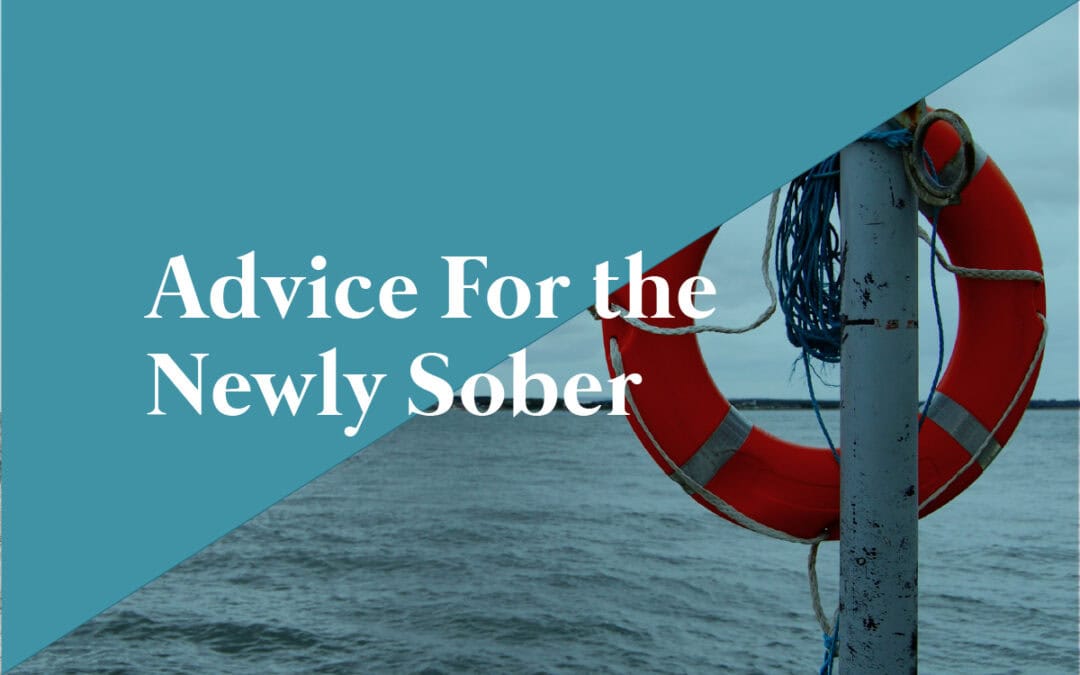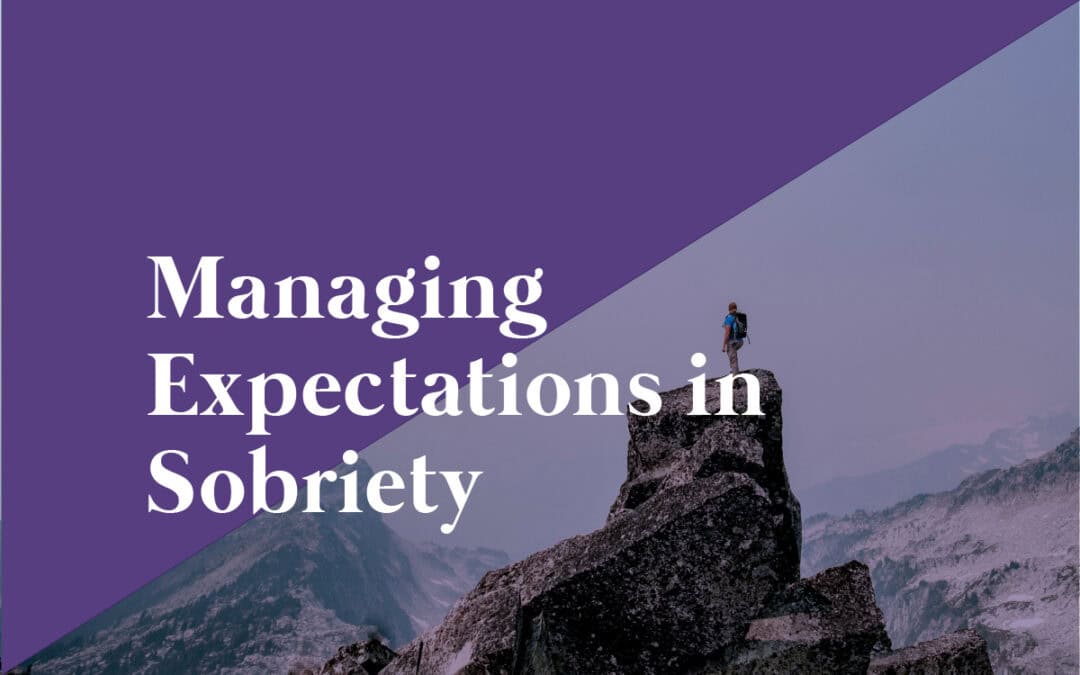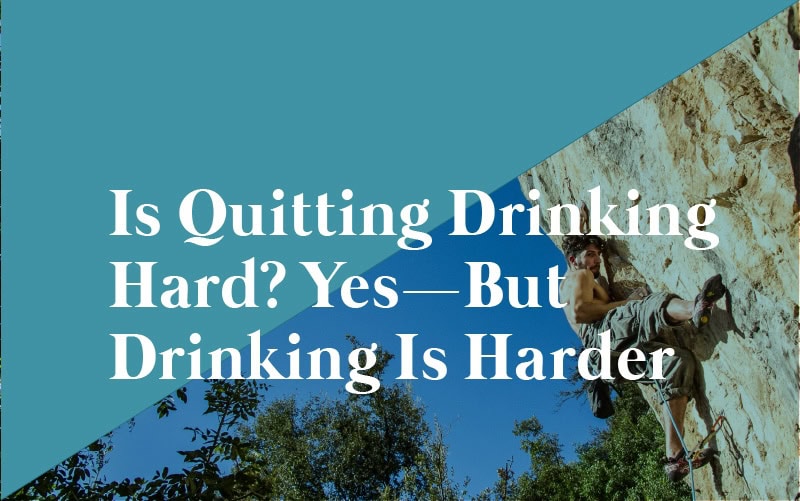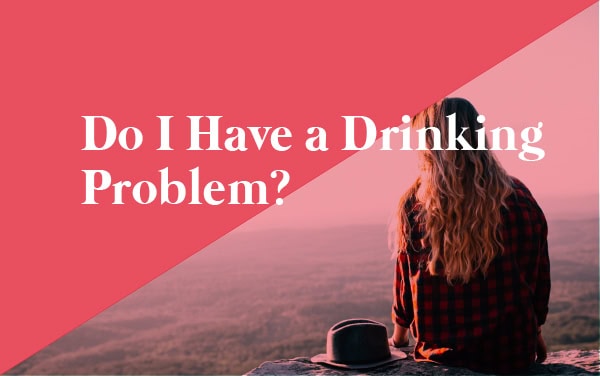
by Kerri MacFarlane | Jun 15, 2025 | Alcohol Free, Blog, Early Sobriety, Helpful Tips
Advice for the Newly Sober: Insights from the Recovery Elevator Community
Embarking on a journey of sobriety is a brave and life-changing decision. Whether you’re just starting out or thinking about taking that first step, finding the right advice for the newly sober can make a huge difference. That’s why we asked our amazing Recovery Elevator community to share their best tips and words of encouragement for those just starting out.
If you’re newly alcohol-free or sober-curious, keep reading…this list is full of wisdom, compassion, and practical steps you can take today.
1. Take It One Moment at a Time
“If forever is too much to handle, quit for today. If today is too much, quit for an hour… You can do it.”
One of the most powerful pieces of advice for the newly sober is to avoid overwhelming yourself with the idea of “forever.” Sobriety is built one moment at a time, and that’s more than enough.
2. Trust the Urge to Quit: Early Advice for the Newly Sober
“If you’re thinking about quitting, you already know it’s time.”
Your intuition is one of your greatest assets. If something feels off with your relationship to alcohol, trust that feeling. This is advice for the newly sober that applies before you even take that first step.
3. Never Quit Quitting
“Recovery is a daily practice. If you slip, start again. One more day sober is better than none.”
No matter how many “Day Ones” you’ve had, each one counts. One of the most common pieces of advice is to keep showing up…even imperfectly.
4. Find People Who Get It
“Don’t do it alone. Community makes everything easier.”
Having a sober support network is crucial. Whether it’s a program, a group like Café RE, or just a few trusted friends, surround yourself with people who understand the journey.
5. Rebuild Your Routine with Intention
“Replace your drinking rituals with healthier ones. Create new routines you look forward to.”
This is incredibly helpful advice for the newly sober. Fill your time with positive habits, especially during the times you used to drink.
6. Be Gentle with Your Mind and Body
“Eat the food. Take the nap. Be gentle with yourself.”
Your body and mind are healing. Many people said the best advice for the newly sober was to treat early sobriety as a time to rest and reset. Sleep more. Eat well. Go easy on yourself.
7. Remember Your “Why”
“Write down all the reasons you want to quit. Look at them daily.”
Keeping your motivations front and center is one of the most powerful tools in sobriety. This advice can help you stay grounded and focused.
8. Let Other’s Stories Light Your Path
“Sobriety podcasts helped me realize I wasn’t alone.”
Listening to other people’s experiences helps normalize your own. Check out Recovery Elevator Episode 482 for more community-driven advice for the newly sober.
9. Grace Over Perfection
“Progress is not linear. Celebrate every small win.”
One of the most heartwarming pieces of advice for the newly sober is this: you don’t have to get it right every day. Just keep going.
10. Say It Out Loud, And Mean It
“Tell your people you’re done drinking. Make it real.”
Going public with your intention to quit…whatever that looks like for you…can help solidify your commitment.
Final Thoughts: Keep This Advice for the Newly Sober Close
Whether you’re on Day 1 or Day 100, the most important tips for early sobriety is this: you’re not alone. There is a vibrant, supportive community ready to walk with you…one moment, one choice, one day at a time.
Looking for more resources? Explore Café RE…a private, supportive space for people looking to live alcohol-free. And don’t forget to subscribe to the Recovery Elevator Podcast for more stories, tools, and inspiration each week.

by Kerri MacFarlane | May 15, 2025 | Blog, Early Sobriety, Expectations, Helpful Tips, Resources

by Kerri MacFarlane | Apr 15, 2025 | Alcohol Free, Blog, Early Sobriety, Expectations, Helpful Tips
Is Quitting Drinking Hard? Yes—But Drinking Is Harder
When faced with the question, “Is quitting drinking hard?” the honest answer is—yes, it can be. But if you have a problematic relationship with alcohol, the challenges of quitting pale in comparison to the difficulties of continuing down the path of self-destruction that drinking often leads to.
In this post, we’ll explore why quitting drinking can feel hard and why it’s even harder to keep drinking. Stick around to discover the brighter side of sobriety and the immense rewards that come with it.
Why Quitting Drinking Can Be Hard
- Physical Detox
When you stop drinking, your body needs to detoxify from alcohol. This process can be physically uncomfortable, especially in the first 72 hours. Symptoms like night sweats, brain fog, and stomach issues are common. In severe cases, quitting alcohol cold turkey can even be life-threatening. If you’re concerned, consult a healthcare provider before quitting.
- Breaking Old Habits
Alcohol is often deeply ingrained in daily routines. Letting go of these patterns and forming new habits takes effort and time. For example, if your typical “witching hour” is 5–6 PM, you might need to find a new activity, like hitting the gym or joining a pickleball league.
- Lack of a Support System
Starting an alcohol-free journey can feel isolating, especially if your social circle revolves around drinking. Online sobriety communities and peer support groups can help you build essential connections for long-term success.
- A World Built Around Alcohol
From social events to advertisements, alcohol is everywhere. Living in a “drunk world” makes it harder to escape its influence, especially in the early days of sobriety.
- Facing Boredom
Many of us have been conditioned to avoid boredom at all costs. However, boredom is a natural and even healthy state. Learning to sit with it instead of escaping into drinking can be an adjustment.
Why Continuing to Drink Is Even Harder
While quitting drinking has its challenges, continuing to drink when you have a problem is exponentially harder. Here’s why:
- Alcoholism Progresses
Alcohol problems don’t resolve themselves; they get worse over time. Continuing to drink leads to physical, emotional, and relational destruction. This is what some call a “slow suicide.”
- Emotional and Physical Toll
The stress of trying to manage drinking—apologizing for drunken behavior, covering up mistakes, and dealing with hangovers—is exhausting. Living with addiction means carrying a heavier burden each day.
- Impact on Loved Ones
Drinking doesn’t just affect you; it affects everyone around you. Addiction erodes relationships and can create lasting pain for those you care about.
Why Sobriety Is Worth It
Here’s the good news: once you move past the initial hurdles, sobriety brings rewards that far outweigh the challenges.
- Physical and Mental Clarity
After 14–21 days, the fog begins to lift. You’ll feel more energized and present, as if waking up after years of sleepwalking.
- Self-Care at Its Best
Quitting drinking is an act of radical self-love. It feels good to prioritize your well-being and treat yourself with kindness.
- A Calmer, More Stable Life
No more waking up to check embarrassing texts or struggling through work with a hangover. Your mornings become brighter, your finances improve, and life feels more manageable.
- Rebalanced Dopamine Levels
Alcohol creates an unhealthy dopamine imbalance, giving short bursts of pleasure followed by long stretches of discomfort. Sobriety allows your brain to rebalance naturally, leading to sustainable happiness without the harsh trade-offs.
- Living Life at Face Value
Without alcohol, you experience life as it is—raw, real, and beautiful. This authenticity allows you to build a life that doesn’t require escape or numbing.
Final Thoughts
Yes, quitting drinking can be hard. But continuing to drink when alcohol has become a problem is far harder. Sobriety offers a chance to reclaim your life, find lasting joy, and be the best version of yourself—for you and those around you.
The journey to an alcohol-free life is worth every step. The question is: Which hard will you choose?
Are you ready to paddle downstream and embrace the magic of sobriety? Let us know in the comments!
🎧 For more on this topic, check out Episode 476 of the Recovery Elevator podcast, hosted by Paul Churchill.

by Kerri MacFarlane | Jul 11, 2023 | Alcohol Free, Blog, Early Sobriety, Helpful Tips
In our Dry January course, REstore, Paul teaches a class covering the different recovery modalities. The good news is that In 2023, there are more ways to ditch the booze than ever before. Even just 10 years ago recovery took place in church basements with bad coffee and shitty donuts, but today the landscape is much different.
**Side note, Paul still goes to an AA meeting, in a church basement with bad coffee. He’s not dawging that way of recovery, he loves his Tuesday night AA meeting, but there are so many more methods, programs, techniques…you name it…available today.
So which pathway is right for you?
A couple caveats before we begin.
Caveat 1. If you are READY then ANY pathway is going to work for you. If you’re truly sick and tired of being sick and tired, then any of these programs will work. In addition, you HAVE to give them a solid try.
Caveat 2 – There is no right or wrong way to quit drinking. We’re going to give some recommendations, but it’s up to you to figure out what works best for you.
When building your recovery portfolio you want this work to be 50% external – 50% internal. At first, the internal work may be too big of an ask, but as your nervous system settles down, you want to aim for a balanced split.
Here are some quick examples of what external vs internal is:
External
- Driving to an AA meeting, or hopping on a Café RE zoom chat
- Phoning a sober friend
- Working with a sponsor
Internal
- Meditation
- Journaling
- Reading quit lit
When building out your recovery pathway Paul recommends this 5 tiered approach. .
5 Tiered Approach
- Community
- Action/Movement
- Inner Peace
- Knowledge
- Universe
- Community – Let’s talk programs that are community focused.
A.A., Smart Recovery, Dharma Recovery, Life Ring, Women for Recovery, Café RE, The Lucky Club, Meetup.com, online sober communities, Reddit, talkingsober.com, our sober Ukulele Course, Dry January and Photo courses, phoning a sober friend, 1:1 Interaction within another person in recovery. Meeting with a counselor or therapist falls under this community approach.
All of these tiers are important but this one is a BIG ONE. In order for you to get the most out of this, you have to first burn the ships, with yourself, then with your community. Burning the ships = Accountability which then = Community.
- Action/Movement
Yoga, dance, music, ecstatic dance, hiking, stretching, running, swimming, drumming on your desk. Your body is meant to move. Chemicals of wellbeing, endorphins, dopamine, and serotonin are released when we move. 3x a week, for 20 min is a good starting point.
- Inner Peace/Creation
Meditation, breathwork, sunrises, sunsets, time spent in nature, time spent with animals, float tank, relaxing, chanting, journaling, inner child work, singing, playing music, painting, writing poetry. This is where you create your new life that no longer requires alcohol. One reason why pen to paper is so effective is you can’t write as fast as the mind can think, so it slows down the thinking mind.
About animals – their nervous systems are much more intact, or less frenzied than ours. Animals live life from the hearts opposed to their human counterparts who live mostly in thought. A recent study shows that similar amount of oxytocin is released when we hug a dog compared to when we hug a human. And flip side to that, oxytocin, or the love molecule is released in dogs, when we pet them. If you’re feeling fraught, visit a petting zoo or kick it with a pet. Human nervous systems can attune themselves to more stable nervous systems, even those of animals.
- Knowledge
This is learning. This is empowering yourself with information. Podcasts, quit lit books, audiobooks, learn about healthy diets, learn about how the mind works. No you cannot read or listen yourself out of an addiction, but this is an important tier. Under this umbrella includes medicines both from the east and west. Perhaps Naltrexone, or the Sinclair method is something you may want to try. Naltrexone is a medication that blocks the euphoria response when we drink alcohol. Perhaps more shamanic approaches with medicines such as ayahuasca, psilocybin, San Pedro or Ibogaine may be right for you.
- The Universe
Lets get clear, this is not religion, but it is the spirituality component of recovery. One of the beautiful purposes of an addiction is it can flex the layers of the ego so much that they eventually snap…letting in what some will call their higher power.
When you say lines to yourself like, “I can’t live like this anymore.” The Universe is right there with you saying, “no problem, let me show you the way.”
Now go slow with the universe. This was the last of the five tiers to implement itself in Paul’s sobriety journey. This one most likely is on the universe’s clock and not yours. But be open, pay attention to the breadcrumbs of life and don’t be afraid to ask for assistance or guidance from the universe at any time.
There’s a well remixed line that has been floating around for several thousand years. Ask and you shall receive.
To recap, 50% internal, 50% external and hit a couple things from the five tiers ,and you’ll be just fine.
Remember, your recovery is always changing, because you are. It should change. What you’re doing now should look different than what you were doing a month or year ago.
***Taken from Recovery Elevator Podcast, Episode 425, host Paul Churchill***

by Kerri MacFarlane | May 15, 2023 | Alcohol Free, Blog, Helpful Tips, Resources
Today is the day! Today is the day we are going to find out if you have a drinking problem…or not. Are you ready?
For Paul, when it finally sunk in that he did indeed have a drinking problem (and a good one at that!) two things happened.
First…he was like, “Oh F&#K!”
Then…immediately after, as this truth spread into his body, to his bones, to his conscious, his unconscious, to the heart, to the liver, something neat happened. An incredible amount of energy was instantly liberated.
For two reasons.
- The stigma or label of an alcoholic didn’t change who he was. He was still alive.
- But more importantly…all the energy, the incessant thinking he had of…
- Do I drink, or not?
- Do I have a problem, or not?
- How am I going to control my next session of drinking?
- How am I going to hide it?
- Let’s do our best not to black out before 8 pm.
- Do I have enough shitty box wine back home?
- Let’s not let people know we’ve already had 9 drinks before meeting up at the bar.
ALL of that went away instantly.
In fact the worst place a person can be with a drinking problem is in limbo. The do I or don’t I phase. (Paul covers this in Episode 417).
So for this diagnostic, we are going to use the test listed in the DSM 5, or the diagnostically statical manual which is what most psychologists and/or therapists have somewhere on their shelves.
There’s 11 YES or NO questions. If you answer YES to 2 of the questions, if you meet 2 of the 11 criteria, within the past 12 months, they call it an Alcohol Use Disorder.
THE TEST
- Do you sometimes have difficulty controlling how much you drink or for how long you drink alcohol?
- Have you made unsuccessful attempts to cut down your drinking?
- Do you sometimes spend a significant amount of time drinking or recovering from drinking?
- Has your alcohol use had any negative consequences at home, school, or work? (Have you ever lost time off work because of your drinking?)
- Has your alcohol use had any negative consequences to your relationships or social life? (Have you ever concealed how much you drink? Has anyone ever commented on your drinking?)
- Have you continued to use despite any negative consequences?
- Have you put off things or neglected to do things because of your alcohol use? (Have you ever disappointed your family or friends? Have you ever missed a family event?)
- Do you occasionally have strong cravings for alcohol?
- Has your tolerance for alcohol increased? Are you able to drink more than you did before?
- Have you experienced withdrawal symptoms the next day after drinking? (Have you ever been shaky or sweaty that evening or the next day?)
- Has your alcohol use led to any dangerous situations? (Have you ever been charged with impaired driving?)
Paul has always strived to be a good student, and was “happy” to report a score of 100%. 11/11. For shits and giggles, let’s’ cover what it means if you didn’t ace this like he did.
WHAT IT ALL MEANS
The presence of at least two of these symptoms means you have an AUD. If you have two to three symptoms, it’s considered mild; four to five symptoms is considered moderate; six or more symptoms is considered severe. (If you don’t fall into the severe category, a mild diagnosis can still warrant concern, as it may be the start of a larger problem.)
A couple things before we wrap this up. If you have a drinking problem, life isn’t over…in fact, it’s just beginning.
Some of you may have just learned you have a drinking problem. If this is devastating to you, go to Episode 411 where Paul talks about the grateful alcoholic.
Paul had one more bit of info in his notes from Episode 428 If you find yourself listening to a sobriety podcast (or reading this blog), and you’re not a therapist, a doctor, or listening so that you can support a loved one, then YOU have a drinking problem. If you question whether or not you have a drinking problem, you just answered that question. The bigger question is…what are you going to do about it?
***Taken from Recovery Elevator Podcast, Episode 428, host Paul Churchill***







